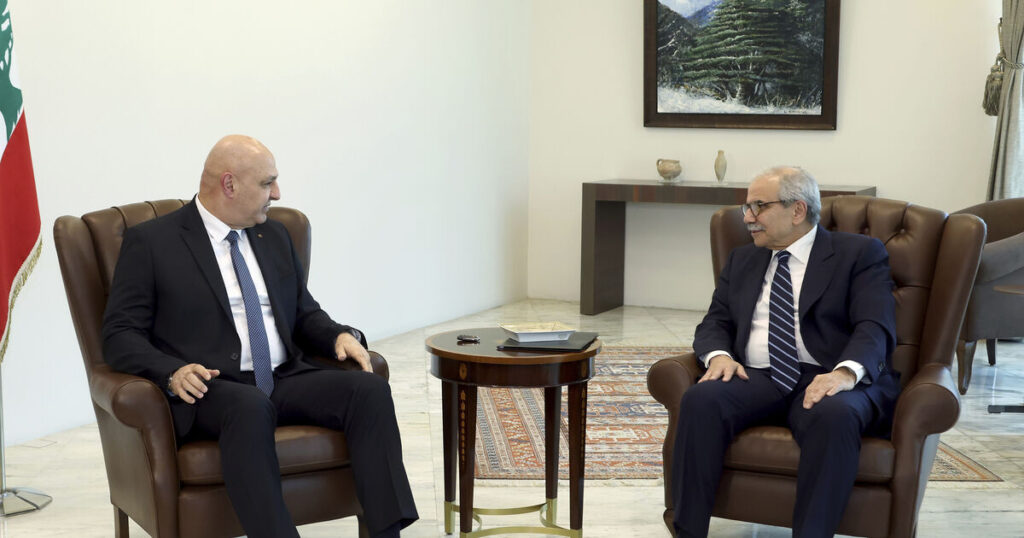The leader of Lebanon’s Hezbollah, Naim Kassem, warned on Tuesday that if Israel escalates its military operations against the group, the Iran-backed faction would retaliate by resuming missile strikes into Israel.
Kassem’s warning coincided with a Lebanese Cabinet meeting to discuss the sensitive issue of Hezbollah’s disarmament.
Beirut is facing pressure from the US to disarm Hezbollah, a group that recently engaged in a 14-month conflict with Israel, leaving it significantly weakened and having suffered losses among its leaders, both political and military.
Since the US-brokered ceasefire in November, Hezbollah officials have stated that any discussion of disarmament is contingent upon Israel’s withdrawal from five contested hills within Lebanon and the cessation of near-daily airstrikes, which have resulted in casualties, primarily among Hezbollah members.
Israel has repeatedly accused Hezbollah of working to restore its military capabilities.
The Israeli military maintains that the five locations in Lebanon are strategically important as they provide valuable observation points or are situated across from communities in northern Israel, where roughly 60,000 Israelis were displaced during the recent conflict.
Since the ceasefire agreement, Hezbollah has claimed responsibility for a single attack in a disputed area along the border.
During a televised address on Tuesday, Kassem made clear Hezbollah’s stance, stating any timetable for surrendering its weapons is firmly rejected.
“Israel’s interest is not to widen the aggression because if they expand, the resistance will defend, the army will defend and the people will defend,” he said. “This defence will lead to the fall of missiles inside Israel.”
Following the end of the war, Hezbollah withdrew the majority of its fighters and weaponry from the border region south of the Litani River.
Last week, Lebanese President Joseph Aoun reignited the debate by reiterating calls for Hezbollah to relinquish its arms, a move that reportedly angered the group’s leadership.
The ceasefire agreement remained ambiguous regarding the status of Hezbollah’s weapons and military infrastructure north of the Litani River, specifying that Lebanese authorities should dismantle unauthorized facilities beginning with the area south of the river.
Hezbollah maintains its interpretation of the agreement applies exclusively to the area south of the Litani River, while Israel and the US insist the agreement mandates the complete disarmament of the group throughout Lebanon.
Kassem stated Hezbollah opposes a government vote on its weapons, arguing such a decision requires unanimous support from all Lebanese factions.
“No one can deprive Lebanon of its force to protect its sovereignty,” Kassem asserted.
Hezbollah’s arsenal remains a contentious point among Lebanese society, with various groups advocating for its disarmament.
The Israel-Hezbollah conflict commenced a day after the October 7, 2023, Hamas-led attack against Israel from Gaza. The war resulted in over 4,000 fatalities and caused $11 billion (£8.3 billion) in damages.


